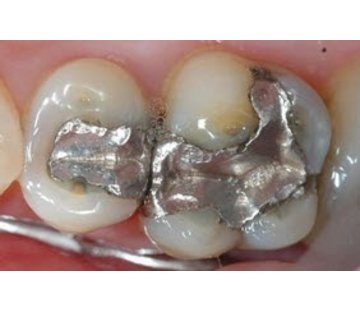mercury in blood mercury poisoning?
Mercury from EDTA whole blood + Serum (note code HGE under "other analyses") tbv testing of mercury from e.g. amalgam fillings.
or for mercury toxology by labor)
Quecksilber Arbeits- & Umweltmedizin Elemente Toxikologie
2022: It has been indicated from Limbach's Medical Value Group that mercury intracelluliar has no added value and that mercury in whole blood EDTA is sufficient.
Consequently, mercury intracellular HGIZ is no longer offered.
Mercury in blood
The test measures the amount of mercury in blood . The body does not need mercury and the amount in blood or urine is low. Mercury occurs in very low quantities in our living environment and we take it in by inhalation, through the skin or by eating for example fish, which contains relatively many heavy metals including mercury.
Normally, mercury absorption from the environment is so low that it does not cause any damage to health. However, acute (short, large amount) or chronic (long, low amount) exposure to mercury can lead to mercury poisoning and serious health problems.
Symptoms of acute poisoning include:
- Burning sensation in mouth and lungs
- coughing, difficulty breathing and heavy feeling in the chest
- urinate less
- nausea, vomiting and diarrhoea
- accelerated heartbeat
Symptoms of chronic poisoning include:
- kidney problems
- problems with hearing, taste and smell
- poor vision, or tunnel vision
- tingling or trembling of arms and legs
- difficulty walking
- irritability
People who come into contact with mercury because of their work should be examined regularly.
What does the result mean?
The result is good if it is below 10 nmol/l. This reference range refers to fish consumption up to three times a
month. Working health assessment criteria are
published only for urine as sample material
Normal
A normal mercury value means that a person has not been exposed to too much mercury, at least during the period of testing.
Elevated
An elevated mercury value means that someone has been exposed to too much mercury. However, the elevation does not tell how much mercury a person has been exposed to. Acute mercury poisoning is treated by making the patient drink lots of water and vomit or pump the stomach.
Lowered
A lowered mercury concentration is not a problem. This is because the body does not need mercury.
Conversion factorµg/g
creatinine x 0.5639 = nmol/mmol creatinineReference value
(s)
Non-professional exposure: < 3 µg/g creatinine (< 1.69 nmol/mmol creat.)
Professional exposure: < 50 µg/g creatinine (< 28.2 nmol/mmol creat.)
Mercury is best measured in urine:
The urine test allows for better assessment of mercury exposure. Mercury is used in dentistry (amalgam fillings), disinfectants and preservatives, thermometers, batteries, fluorescent tubes. Acute intoxication: metallic taste, kidney damage, haemorrhagic gastroenteritis, stomatitis, oesophagitis
Chronic intoxication: fatigue, headache, dizziness, loss of appetite, metallic taste, gingivitis, central nervous system symptoms, recurrent infections, joint pain, hair loss, etc.









